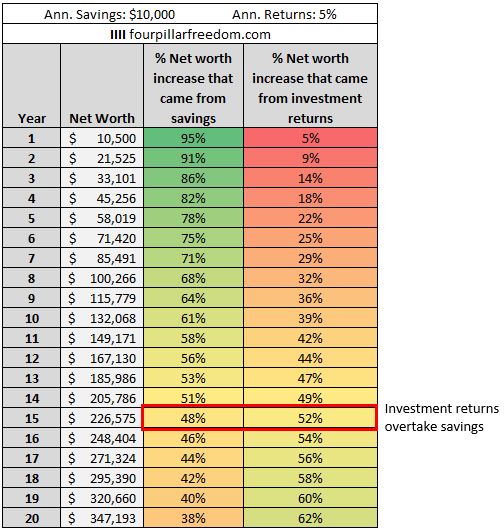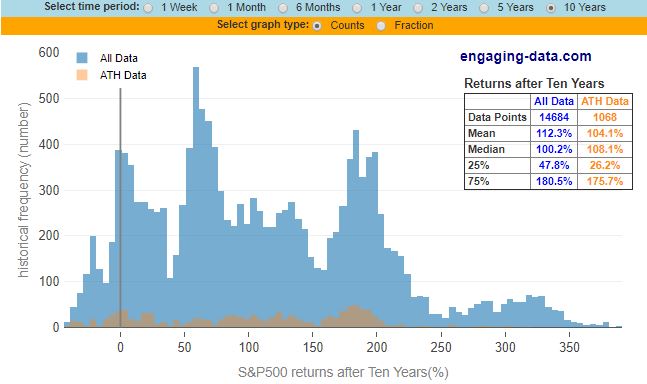
6 min read
Next month I turn 25. Here are eight life and money lessons I have learned so far in my 20s.
1. Be quick to listen but slow to follow.
Professors, parents, older coworkers, older siblings of friends, that one dad at the apartment pool, and many other older adults are quick to dish out life advice. And I’m quick to listen since age is loosely positively correlated with wisdom. But I have learned to be slow to follow advice.
Good advice I have received:
“You’ll never have as much free time as you have now in your 20s. Don’t waste it.”
“Life goes fast. Stop and look around often.”
“Invest early and often.”
Not-so-good advice I have received:
“I had a horrible rental property experience when I lived in Texas. Don’t ever buy rental properties, they’re not worth the time.”
“You should buy a nicer car now that you have a full-time job. It’s time to reward yourself.”
“You’re more likely to get rich buying individual stocks than investing in silly index funds.”
One way that I weed out the good from the bad is to simply see if the person giving the advice follows their own advice, and if so, if it seems to have benefited them. Has it made them happier, wealthier, or more free? If not, I’m cautious to follow their lead.
Related: Most Individual Stocks Underperform Index Funds
2. The grass is rarely greener on the other side.
In my day job as a data scientist, there are aspects of my work that I don’t love. And at times I think, “I bet person X is much happier at job Y. Maybe I should switch professions.” But then I think about nearly every person I know in their 20s. Very few of them love their day job, no matter what field they’re in. I have come to realize that here are aspects of every job that involve some drudgery, especially when you’re near the bottom of the totem pole in the workplace.
I no longer aspire to fall in love with my day job or spend time daydreaming about how much better other jobs would be. Instead, I view a day job as a way to earn money and build my skill set.
I like to keep in mind the following quote from Chris Anderson, the CEO of 3D Robotics:
“Many of us have bought into the cliché ‘pursue your passion.’ For many, that is terrible advice. In your 20s, you may not really know what your best skills and opportunities are. It’s much better to pursue learning, personal discipline, and growth. And to seek out connections with people across the planet. For a while, it’s just fine to follow and support someone else’s dream. In so doing, you will be building valuable relationships, valuable knowledge. And at some point your passion will come and whisper in your ear, ‘I’m ready.’”
I am not attempting to “find my passion” through my day job. I simply strive to learn and grow a little bit each day while saving a significant chunk of each paycheck until I have the financial means to work for myself.
Related: There is No Such Thing as a Perfect Job
3. Travel is eye-opening but not soul-revealing.
Instagram travel accounts would have you believe that extended travel is the key to “finding” yourself as a 20-something. But based on my own experience, I don’t find that to be true.
Of the few 20-somethings I know who have traveled for long periods of time, or even lived abroad, none of them claim to have had soul-revealing experiences. That’s because when you move your body to a different physical location on earth, you’re still you. Any problems, worries, and struggles that you carry will still be present. Backpacking through a remote jungle in South America won’t change that.
I have found, however, that travel is eye-opening. During college, I went on two nearly month-long study abroad trips to Costa Rica and Japan. It was fascinating to see how people live in these different regions and how cultures can vary so much from one country to the next. These trips enhanced my perspective of the world.
I plan on traveling more in the future, not to “find” myself or to cure any of my problems, but simply to see what’s out there and experience different cultures and environments.
Related: Great News: You Don’t Have to Be a Digital Nomad to Find Bliss
4. The amount you invest matters more than the returns you earn when you’re just starting out.
When you’re starting at the financial ground floor in your 20s, the amount of money you actually invest in the market matters far more than the returns you earn.
For example, consider someone who starts with $0 and is able to save and invest $10,000 each year earning 5% annual returns. The amount they save and invest will account for more of their net worth growth than investments returns each year for the first 14 years:

Original post: How many years does it take for investment returns to matter more than savings?
This is why I tell people in their 20s to focus on becoming an income machine, not an investment guru. The amount you earn, and subsequently save and invest, is what really determines how fast you can grow your net worth.
5. To spend less money, get the big, boring things right.
The path to wealth involves spending less than you earn. And to reduce spending, I have found that it’s most important to get the big, boring things right. Namely, by minimizing my big three expenses of housing, transportation, and food.
This past year I was able to keep these expenses fairly low by:
1. Sharing an apartment with a roommate ($611 monthly rent).
2. Driving a Honda civic that gets good gas mileage.
3. Packing my lunch at least four days per week at work.
These three simple decisions and habits helped me keep my monthly spending to around $1,200 – $1,600, which left me with thousands of dollars each month to save and invest in my investment accounts.
6. It’s OK to invest at all-time highs.
Often people say “I’m scared to invest right now since the market is at an all-time high.” The problem with this line of thinking is that the market goes up far more than it goes down, which means it is often at all-time highs. Fortunately, historical data tells us that all-time highs are nothing to be feared.
According to this interactive chart from Engaging Data, the median 10-year return on days when the market is at an all-time high is 108.1% compared to just 100.2% for all possible days.

Even when the stock market is at an all-time high, you can expect about the same returns (sometimes even better returns) going forward as you can when the market is not at an all-time high.
The reason for this is that all-time highs in the market are typically followed by more all-time highs. This is the nature of the stock market.
Original post: Should You Invest When the Stock Market is at an All-time High?
7. Self-awareness is an underrated tool.
Developing the self-awareness to know what activities bring you joy, what type of work gives you meaning, and what type of people give you energy, is one of the greatest gifts you can give yourself.
To develop this self-awareness, I have personally found it helpful to jot down notes in my phone at the exact moment when I find myself experiencing joy in an activity (playing basketball, frisbee golf, hiking, lifting weights, hanging out with family) and also when I find myself being stressed out by an activity (long commutes, pointless meetings, being around energy-draining people).
Then, later on when I look at these notes I can identify what gives me energy, what steals my energy, and actively avoid energy-draining situations as much as possible.
In reference to self-awareness, Carl Richards may have said it best:
“Whatever you have to do to gain self-knowledge, do it. Find out who you are and what you want. Then you can stop wasting your life energy and your money on stuff that doesn’t matter to you.”
8. Success count matters more than success rate.
A 10% success rate sounds pretty pitiful.
Luckily, it was a high enough success rate for me when I applied to ten different companies and only got interviewed by one for a data scientist position.
One important lesson I have learned in my 20s is that success count matters more than success rate.
Examples:
1. When I sent my resume to ten companies, getting rejected or ignored by nine of the companies didn’t hurt me in any way.
2. I created several blogs and websites before this one. This is the first to be successful in any meaningful way. Fortunately, the ones that didn’t work out didn’t hurt me in any way either.
3. In college, I applied for dozens of scholarships and only landed a couple. Fortunately, that was enough to help me pay for a substantial part of my tuition. The ones I didn’t land didn’t hurt me.
In almost any arena, you don’t actually need a high success rate to be a successful person. You simply need one or two successes here and there. And through increasing the amount of attempts you make, sites you build, scholarships you apply for, resumes you send, you increase the likelihood of hitting upon a few crucial successes.
- The Ad Revenue Grid - August 6, 2021
- Attract Money by Creating Value for a Specific Audience - July 13, 2021
- The 5-Hour Workday - March 26, 2021
Full Disclosure: Nothing on this site should ever be considered to be advice, research or an invitation to buy or sell any securities, please see my Terms & Conditions page for a full disclaimer.

Wow…are you really truly only 24??? Your wisdom defies your age! These types of insights are going to pay you lifelong dividends, Zach. My favorite: #7!
I agree with all of them but I love #8! You have to approach life with the Thomas Edison mindset. He didnt fail, instead he found 10,000 ways not to make a light bulb, and then eventually made a light bulb.
Our failures, of leveraged and learned from properly, shall act as our stepping stones to success.
The key is to ensure you give yourself enough “at bats” to hit the occasional home run.
Cheers,
Dom
Fantastic advice, Zach.
Agree fully on travel btw. Some of the best and brightest in history stuck within the same zip code their entire life. Crazy what interacting with other people and books can do to enlighten, short of access to a passport and airplane…